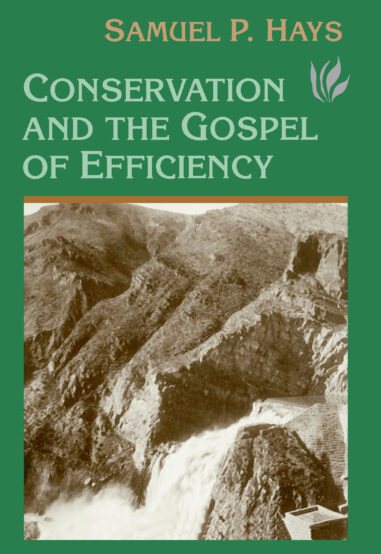The relevance and importance of Samuel P. Hay's book, Conservation and the Gospel of Efficiency, has only increased over time. Written almost half a century ago, it offers an invaluable history of the conservation movement's origins, and provides an excellent context for understanding contemporary enviromental problems and possible solutions. Against a background of rivers, forests, ranges, and public lands, this book defines two conflicting political processes: the demand for an integrated, controlled development guided by an elite group of scientists and technicians and the demand for a looser system allowing grassroots impulses to have a voice through elected government representatives.


